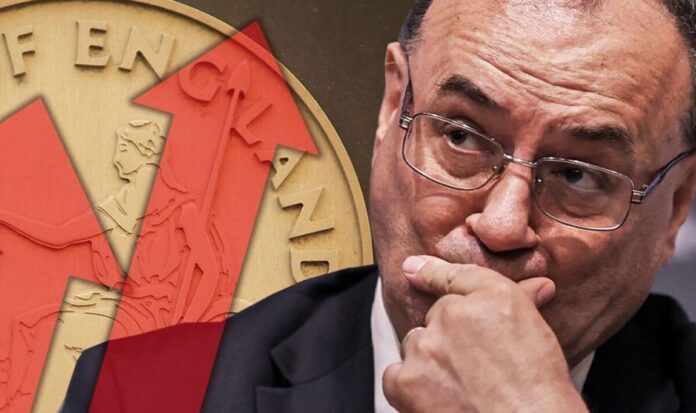This represents the biggest interest rate in 33 years as the financial incision attempts to prevent the country from nose-diving into a recession. Earlier today, the Bank of England’s Monetary Policy Committee (MPC) met to discuss the UK’s base rate. Over the last couple of months, the central bank has consecutively raised the base rate which is now at 2.25 percent.Interest rates have been rising consecutively over the last couple of months amid the continuing cost of living crisis.While the Bank of England’s MPC has chosen to continue doing this for this month, many will be wondering how long the base rate will continue to increase in the coming months.This has been done to mitigate the damage caused by inflation on the economy, which is currently at 10.1 percent.Savers are likely to receive a boost on their returns following the decision, as they have done in months past.READ MORE: 70 health conditions qualify for extra £156 a week in PIP from DWP Bank of England raises interest rates to 3% – biggest increase in 33 years (Image: GETTY)However, concerns have been raised at the potential repercussions this will have on mortgage holders and people with debt.Following the economic turmoil resulting from Liz Truss’ premiership, the country will be looking to new Prime Minister Rishi Sunak to calm the markets, and address the UK’s soaring base rate and inflation.Experts are sounding the alarm that further tax rises and spending cuts may result in a recession even worse than anticipated.Susannah Streeter, senior investment and markets analyst at Hargreaves Lansdown, shared how inflation is factoring into the Bank of England’s decision-making.DON’T MISSState pension sum may be less if you were ‘contracted out’ – check now [WARNING]What the falling pound will mean for YOUR finances [ALERT]Single mum on Universal Credit shares her top tips for saving money [INSIGHT]450,000 people may be placed on energy prepayment meters [ALERT]Ms Steeeter explained ‘The price spiral is tough, particularly with labour shortages fuelling wage growth and volatile energy prices to navigate.’However, they no longer have to deal with the threat of a mass tax cut fuelled by a burst of stimulus.”Instead, we have a new Chancellor flagging that spending will be reined in, just at the moment consumer confidence is plummeting and the housing market is going into shock.’Inflation may well now peak above 11 percent with scorching food prices in particular pushing up expectations.’READ MORE: Paramedic shares how she dishes up tasty meals costing 68p per portion How have interest risen before today? (Image: EXPRESS.CO.UK)Laura Suter, AJ Bell’s head of personal finance, outlined how savings accounts will likely get a boost following this rate hike.Ms Suter said: ‘Savers are the big winners of a rising interest rate environment, as the Bank of England increases rates the interest rates offered on cash accounts will rise too.’However, savers always have to shop around to get the best rates. If you leave your money in an old savings account, your bank might increase your rates slightly but you’ll be getting far less interest than the market-leading account.’Also, rates will rarely rise as high as the cost of borrowing. Banks make their profits on the difference between the interest they charge people for borrowing money and the interest they hand out to savers – this is also why rates on savings accounts tend to go up at a slower pace than borrowing costs in a rising interest rate environment.’


